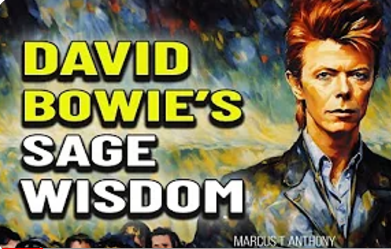
In the 1930s, Russian psychologist Alexander Luria travelled into the villages of remote Uzbekistan to talk to the peasantry. This was not because he was fond of the rustic life of the rural classes, but because he was conducting research into human intelligence. What he discovered suggested that the uneducated rural classes of early twentieth century had very limited capacity for abstract reasoning. Their lives had granted them little exposure to tasks requiring formal application of those skills. The following two examples are edited transcripts from the conversations that took place there.
Conversation 1:
Q: All bears are white where there is always snow; in Novaya Zemlya there is always snow; what color are the bears there?
A: I have seen only black bears and I do not talk of what I have not seen.
Q: But what do my words imply?
A: If a person has not been there he cannot say anything on the basis of words. If a man was 60 or 80 and had seen a white bear there and told me about it, he could be believed.
Conversation 2:
Q: There are no camels in Germany; the city of B is in Germany; are there camels there or not?
A: I don’t know, I have never seen German villages. If B is a large city, there should be camels there.
Q: But what if there aren’t any in all of Germany?
A: If B is a village, there is probably no room for camels.[i]
Today, we may be amused or perhaps shocked that people of bygone eras were apparently deficient in mental abilities that we find to be pervasive in the modern world. Referencing Luria’s research in his book What is Intelligence, New Zealand psychologist James Flynn has argued that human populations now have much greater capacity for certain mental abilities than they did until recently in our civilizational development. Luria’s findings suggest that abstract reasoning is a latent human ability that requires either actual training or at least societal encouragement in order to flourish.
Modern education systems routinely promote the expression of mathematical, logical and linguistic abilities, alongside many other useful cognitive, social and technical capacities. It is undoubtedly true that without such environmental impetus to acknowledge and employ these expressions of intelligence, they would not be present to the extent that we find today. Without formal education, much knowledge would be lost and many mental abilities, practical skills and aptitudes would not be widely developed. Einstein could not have developed the theory of relativity if he had lived in rural Uzbekistan and been illiterate. Steve Jobs and Steve Wozniaki could not have created the Apple Mac computer if modern science and technology had not provided them with the wide range of skills, knowledge and hardware needed to do so.
At least up until very recently, people have been getting much, much smarter – and that’s a scientific fact. Skeptics might protest that people can’t even retrieve their cash from an ATM machine in less than ten minutes. They might point out that there is a privately sponsored museum in the U.S. that shows Jesus riding a dinosaur. And they might lament that you can’t have a conversation with anybody without their feeble attention being diverted by an incoming alert on the phone they are clutching like the crown jewels. But such skeptics are wrong – at least according to James Flynn. “The Flynn effect” is the curious fact, named after that psychologist, that IQ scores tend to rise with each new generation – about three points on average. Flynn states that a full 98 percent of today’s population would score higher on an IQ test than their counterparts from 100 years ago.[ii] That is how big the shift has been.
Similarly, it is my conviction, based upon personal experience, that integrated intelligence is a genuine but fuzzy human cognitive skillset which can be developed with practice. It is also my belief that such human cognition will eventually flourish in societies and learning environments that are open to its expression. The problem is, our current science and establishment institutions are either ignorant of integrated intelligence, or are simply hostile to it.

One factor which Flynn suggests is behind the effect is how our societies and education systems valorize thinking skills, especially scientific thinking. He thus sees the world as being divided into eras of pre-scientific and post-scientific thinking. In particular, the popularization of “shorthand abstractions” (or SHAs) has made us much smarter. These concepts are so familiar to us today, that their absence may be difficult for us to imagine. What would your world, and your mind, be like without the following constructs? Note how recently in history they have reached popular awareness.
(1) Market (1776: economics).
(2) Percentage (1860: mathematics).
(3) Natural selection (1864: biology).
(4) Control group (1875: social science).
(5) Random sample (1877: social science).
(6) Naturalistic fallacy (1903: moral philosophy).
(7) Placebo (1938: medicine).
(8) Falsifiable/tautology (1959: philosophy of science).
It is arguably impossible to know what we don’t know – for that would be a contradiction in terms. Yet once we admit that our minds can be greatly expanded by our societies’ inculcation of key concepts – or retarded by their absence – we may be led to wonder what key ideas, not yet be widespread, could potentially expand our intelligence even further. What might be the next big idea that will shift human intelligence?
Yet this question is itself restrictive if we do not question deeply the idea of “thinking” beyond abstract conceptualization. Could there be “non-rational” cognitive processes which could further enhance human intelligence? Perhaps even something which is difficult to measure in an IQ test? Something that is not presently on the mainstream scientific map of intelligence?
What I am referring to is a self-stultifying dynamic. Our dominant science generally doesn’t take seriously that which cannot be readily measured. And we don’t measure things that we don’t consider to be credible. This creates and perpetuates a case of paradigm blindness. As psychiatrist Stan Grof points out, paradigms delimit both the ways of knowing which may be employed to understand the world, and the range of questions that can be permitted to be asked in query of that world.
One very big idea – now beginning to emerge – that could dramatically shift our civilizational IQ is that of “entanglement,” including trans-locality and trans-temporality. I am referring to information transfer – and consciousness processing – that occurs seemingly beyond the confines of space and time. Yes, I am referring to integrated intelligence, and the related idea of entanglement in physics. Entanglement represents a significant challenge to current dominant paradigm thinking. Though typically excluded from mainstream science and our institutions in the modern era, related ideas have been around for thousands of years.
The evidence for integrated intelligence is mounting, as I outlined in Layer X. And I expect that the data supporting a deeply connected cosmos is only going to become greater. The extended mind and the seven modalities of integrated intelligence (outlined in Layer x) will eventually become accepted within science and education, in some form. Once it has been established that our universe incorporates an entanglement of consciousness, the entire field of cognitive science, and ultimately science itself, will have to expand massively beyond its current parameters. Parapsychologist Dean Radin, for example, believes that the idea of entanglement will soon become widely accepted in physics and beyond. Though the timing and precise process that will trigger this shift can only be speculated, it is my belief that this civilizational shift will inevitably occur in some way. I make this prediction (and I don’t make many) based on my personal experience working directly with integrated intelligence – both my own, and others’.
What truly interests me is what will then happen to human intelligence once entanglement and deep connectivity are commonly accepted and practiced? My prediction is that it will represent much more than a mere addition to Flynn’s list of shorthand abstractions, bumping our IQ scores up a notch or two. For entanglement potentially opens the doorway to a greater employment and experience of other ways of knowing. The acknowledgment of integrated Intelligence will shift all of our individual human identities, as well as our collective sense of the relationship between humanity and the cosmos.
It may be that this denouement will mirror my own life journey, and that of many people who have actively explored integrated intelligence. I first accepted the idea of an integrated intelligence intellectually. Then, after a year or two, I began to explore the extended mind experientially. That mindset became embodied. It became my lived experience.
I therefore believe that human beings will soon become much smarter, but not just intellectually. With the advent of integrated intelligence, an entire vista of wisdom and understanding will open before our eyes. It will represent the beginning of a transformation of human consciousness and human identity on this planet. We will never be the same again.

I note that James Flynn says nothing about integrated intelligence. But he does argue that agrarian era humans did not develop their full capacity for abstract thinking because their focus was elsewhere. They simply saw little value in employing such mental modes in their societies. What would be the point of parents and elders in rural Uzbekistan teaching abstraction, logic and hypothetical representation to the young?
Being a scientist trained in the western empirical tradition, James Flynn’s mind is also probably “elsewhere:” not focused upon the expression of an integrated intelligence, but upon the predominately abstract conceptual modalities that define current establishment science and education. I suspect he might be somewhat aghast at my using his insights and those of Alexander Luria to further my claim that innate intuitive abilities are latent within twenty-first century humans in much the same way as the capacity for abstract conceptualization lay dormant within human beings in less developed societies. Yet it is a claim I make nonetheless. The abilities are there. I have seen them in many people. It is just that they remain dormant.
This is an extract from Marcus T Anthony’s latest book, Power and Presence: Reclaiming Your Authentic Self in a Digitized World.

[i] Quoted in J.R.Flynn (2009), What is Intelligence? Cambridge: Cambridge University Press.
[ii] This is a hypothetical point. Wide scale IQ tests did not begin till after World War Two.






4 thoughts on “How We’ve Become Smarter: And How We Haven’t”
This is a POWERFUL revelation in my world of Behavioral Science.
While I am a self-confessed GEEK or GHETTO GEEK, the words, branding and conceptual application of Integrated intelligence feel like the most fertile ground of appreciation our Creator has always made present despite our human blindness and arrogance. While I feel fairly competent in the areas of Emotional Intelligence, Spiritual Intelligence, Servant Leadership, Quantum Leadership and more. Integrated Intelligence feels like and provides me with a prescriptive pallet of appreciation different from Cooperrider’s Appreciative Inquiry, in which I am also well versed.
Thank you for helping me work through this cognitive mental kaleidoscope as a GHETTO GEEK.
Well thanks, Greg. I always appreciate feedback, and positive feedback helps me keep going! BTW, you may enjoy my most recent post about lion tamer Voyd Barty.
Random first thoughts:
It’s an interesting concept – integrated intelligence – at a time when humans seem rather violent, greedy, and preoccupied with technology. Maybe there is hope.
In the book ‘The Field’ by Lynn Mctaggart, it was interesting to note how much resistance there was in the scientific community to concepts that they didn’t like (a threat to the ego?), even when there was supporting data. It’s not clear to me if every experiment in that book is credible (e.g. Emoto water experiments are reportedly not repeatable) but some of them probably are. Possibly fear slows us down in such sweeping evolutions.
Super extra random: It’s interesting that aliens are often depicted with big heads, big eyes and small mouths. While it might be a bit ‘out there’ to make any assumptions, it seems quite plausible that, if there is any credibility to such beings, they have probably mastered integrated intelligence and perhaps communicate via telepathy with little need for so much jibber jabber (aka conversation).
Looking forward to reading your book.
Dear Heather,
Thanks so much for your comment, and apologies for the late reply. You are right about the resistence to an integrated intelligence in academia, especially the hard sciences. Rupert Sheldrake has written a lot about that, and you might like to check out his work if you don’t know about it. I’m also writing a little about that in my upcoming book, Power and Presence. I do believe that the mind is often scared of non-local effects, as it represents a loss of control, and is a threat to the idea of autonomy and a discrete identity.
As for aliens and telepathy, this is a common experience for people who claim to have had encounters with alien entities and UFOs, and it is also a key component of near death experiences. I personally believe that all lifeforms have some degree of integrated intelligence, its just that some have mastered it more than others. I have met people with incredible capacities in this area, and I have worked extensively with some of them. I believe that it is just a matter of time before the non-local mind is acknowledged, and that we improve our capacity to employ it. But I know from personal experience that that will not be all fun and games. It is very difficult accommodating that understanding into personal experience. For example, you can pretty much forget about privacy!
Marcus